29 August- 2 Sept 2022
In the moon race, time is limited to rebuild a peaceful international order
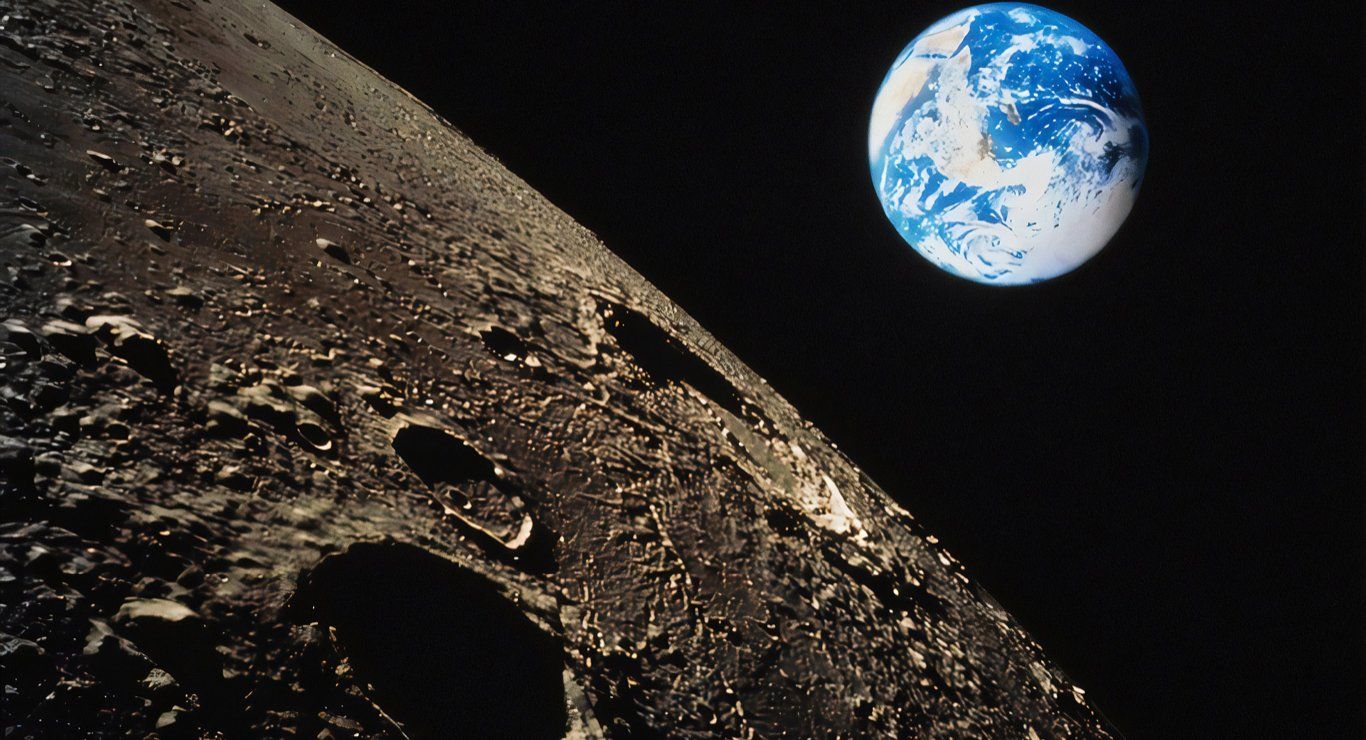
UN laws do exist governing outer space activities (Image: Pixabay)
Artemis-1 is symbolic of our long-term goals in space, returning to the moon, exploring deep space and retrieving resources from other celestial bodies. Yet as we accelerate towards these goals, the world is still far away from establishing rules to govern such activities, which will be vital in order to prevent conflict, and address this legal grey area.
The issue has become more pressing this week in light of an ongoing public feud between China and NASA Administrator, Bill Nelson. Both sides may be looking to explore the same landing zones on the moon, and whilst the UN Outer Space Treaty (OST) forbids the appropriation of territory, the use of resources remains unclear. New space nations and the commercial sector also require clarity, before becoming embroiled in conflict, whilst deteriorating international relations continue to impact relations in space.
There could be hope, and international laws do exist, but how can they be expanded, managed and implemented, in order to secure a successful future in space? Some proposals were put forwards this week.
The space economy is rapidly expanding, and so must the rules
The new space economy will not only encompass the space superpowers, but a fully fledged, high-functioning economy, with new nations emerging and a powerful and innovative private sector driving it. Without a globally recognised set of rules and governance in place, this future could be set the fail.
South Korea are building on their goals in space, seeking funding to develop a lunar lander to be carried to the moon on their own rocket, by 2031. They already sent their first lunar rover to the moon last month, and are amongst a host of new space nations such as the UK and Australia, looking to be part of this promising future.
Our future will also belong to the new and innovative private sector, exemplified this week by US startup Orbit Fab, announcing their plans to demonstrate in-orbit refuelling technology by 2025, with leading debris removal company Astroscale signing up for their services.
The US have also restated their commitment to the private sector with the Air Force Research Laboratory announcing it’s plans to partner with the private sector in order to move forwards with projects such as solar powered spacecraft. Furthermore, US Chief of Space Operations recently paid a visit to British rocket-maker, Skyrora, in a boost to US-UK cooperation in space. The visit also reaffirmed governmental approval of such companies, as the Space Chief John Raymond said “Now, more than ever, international cooperation in space is critically important. And the proliferation of commercial space efforts helps all spacefaring nations by driving costs down.”
As old and new stakeholders drive the industry towards its goals, problems also await them. In reports this week, it appears that China and the US have chosen the same landing sites in the lunar south pole. This is a significant development, and representative of the problems that lay ahead. Territory cannot be appropriated, according to international law, but it’s highly dangerous to land at the same sites. The US have proposed the use of “safety zones” in their Artemis Accords, but China claim that this is tantamount to appropriation. On top of this, international relations continue to deteriorate, and it appears that these matters will not be resolved quickly.
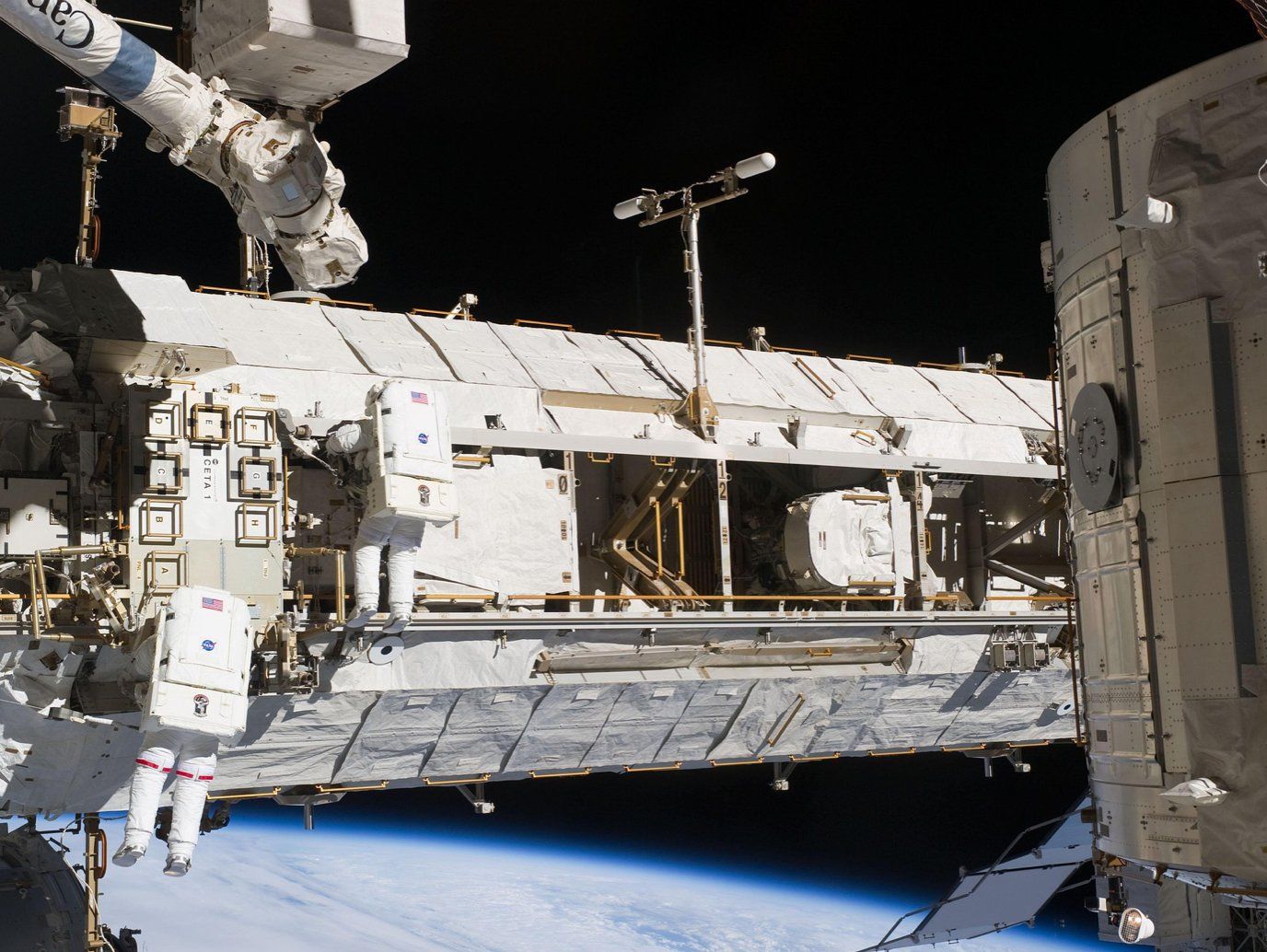
Space continues to be affected by events on Earth, such as on ISS (Image: Pixabay)
Earthly conflicts could destroy hard-earned peace in space
The deterioration of international relations is certainly affecting relations in space, at a time when unity is so desperately needed in oder to guarantee a peaceful future. Can space once again become the bastion of politically neutral cooperation, or even be used to mend relations, or will it permanently become entwined with politics and geopolitics? Our giant leap forwards in space comes at a time when international relations are shifting.
In a surprising move, India has denounced China’s recent activities, and accused it of militarising the Taiwan strait, after China recently docked a military research vessel in the Sri Lanka port of Hambantota, with India fearing that China intends to use the port as military base. This new stance from India could have consequences for China, who are already dealing with international pressure from the west on Taiwan. Also, Taiwanese president Tsai Ing-wen has recently met US governor of Arizona, declaring that Taiwan looks forwards to establishing a microchip factory there, and comes at a critical time considering the global chip shortage. Taiwan have been (and will be) receiving diplomatic visits of officials from the US, Europe, Canada and the UK.
As dramatic shifts in international relations takes place, is it inevitable that our future will be tainted by the events of the present? Whilst US-Russian cooperation on the ISS continues to provide some hope for a politically neutral cooperation, relations with China continue to deteriorate. A war of words has been taking place between China and NASA’s Bill Nelson, spurred on by the Artemis-1 launch. Nelson said that ““we must be very concerned that China is landing on the Moon and saying ‘It’s ours now and you stay out’”. Zhao Lijian, a Chinese foreign ministry spokesman, responded ”the US side has constantly constructed a smear campaign against China's normal and reasonable outer space endeavors, and China firmly opposes such irresponsible remarks,”.
It doesn’t appear at the moment that adversaries are in a position to discuss an open, cooperative and peaceful future in space, particularly in relation to appropriation of territory and resources. Yet there is one thing to remember, which is that despite their differences, the US, China and Russia are all party to the 1967 Outer Space Treaty. Whilst the treaty may be outdated and open to interpretation, it could be a solid foundation.
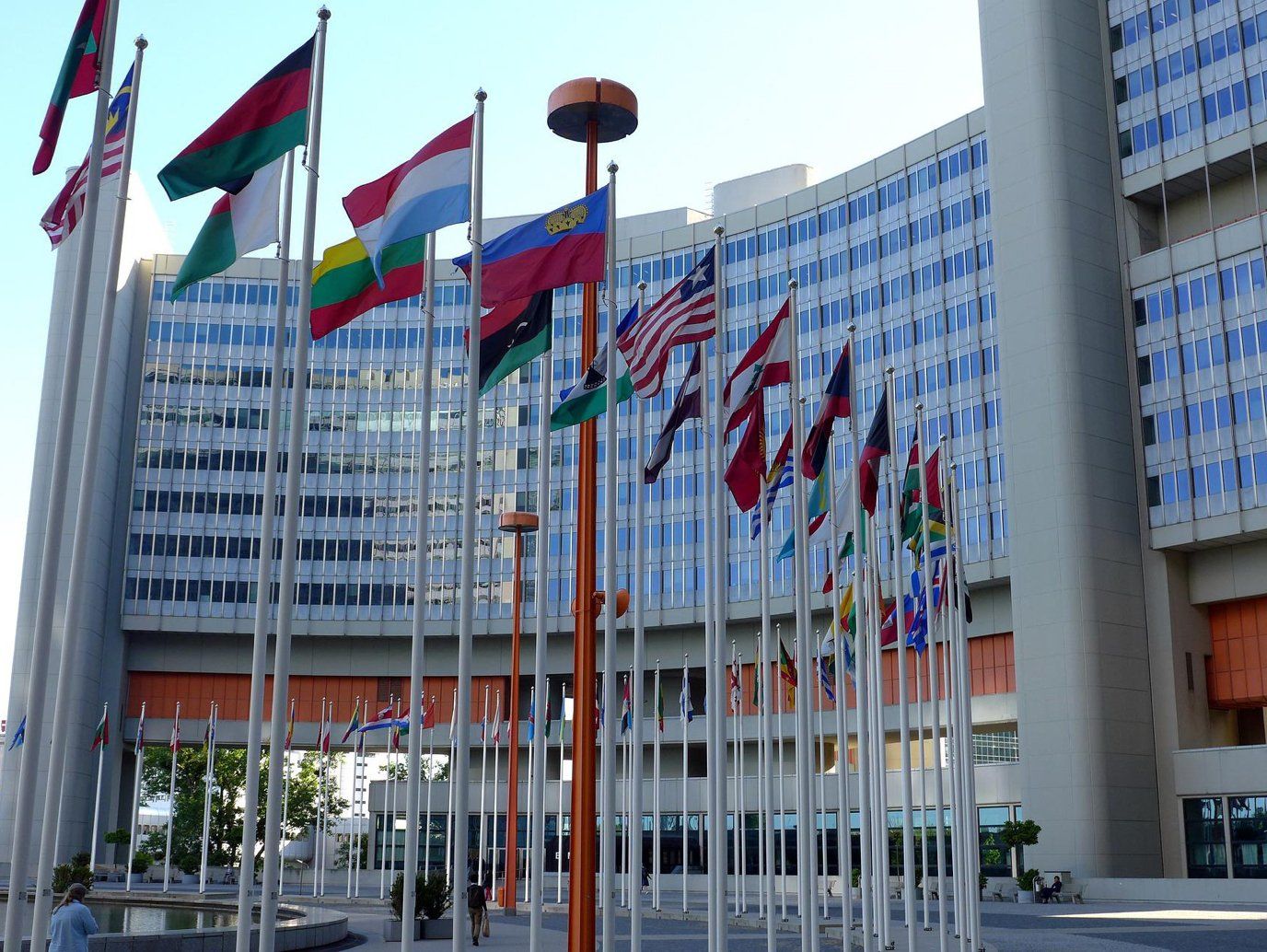
Can UN law be updated for the new space age? (Image: Pixabay)
There are rules in place, which can guide our way to a peaceful and successful future
The OST is in in place, but it may be the case that needs to be updated, in order to accommodate for the new space age, with it especially lacking protocols for mining in outer space and appropriating resources. But, this may not be as easy as it sounds. The Moon Agreement 1979, lays out rules that define lunar resources as the “common heritage of mankind”. This was not signed by any of the major space nations.
The US seem to be satisfied that the OST allows for resource extraction, and is enshrined in their Artemis Accords. However, Michele Hanlon, McGill University claims that ”by building a mining operation, some would argue ... you're actually claiming sovereignty by another means”. Yet both the US Artemis Accords, and future Chinese-led missions will aim to secure the same landing sites on the moon, and likely for the same ultimate goal of extracting valuable minerals. Both sides claim to be following the same set of International laws, but are still on course for collision.
However, Belgium claims that it may have an answer. According to the Brussels Times, the country has established a new working group as part of the United Nations Committee for the Peaceful Uses of Outer Space (UNCOPUOS). Belgium are perched in-between international space mining regulations. They are party to the Moon Agreement, meaning they cannot sign any new laws permitting outer space mining, but they are part of the ESA, which is part of the Artemis Accords, that does. This could see Belgium become a neutral mediator in managing rules, which could be laid out as part of a set of fair guidelines created within the new working group.
China and the US may also be trying to take lead in a battle for moral superiority. China this week announced that they are achieving historic “firsts” as part of their sun-probing satellite mission, in which they are openly sharing data with the global society. They are also opening their new Tianwen station for use by the internal community, as well as building the world’s furthest reaching radar system to detect earth-threading asteroids. Could this indicate China as taking the lead in building a global space community? At the same time, the US are taking the lead in achieving a ban on anti-sat demonstrations, and protecting Earth and Earth-orbit from such activities.
Whichever side you fall on, it is still the same goal that is trying to be achieved. However, deteriorating international relations and scepticism of one another is making it seemingly impossible to find a way for us all to come together and agree on a way forwards. Yet only last week, the US and China announced a deal that will hopefully allow Chinese companies to remain trading on the US stock exchange, preventing around 200 companies from being kicked out. This does go to show that there can be a way forwards, despite their differences. In the OST, we have made a start in establishing internationally recognised space law, and now it’s time to continue with that job, of building a peaceful and successful future in outer space, before it’s too late.
External Links
This Week
*News articles posted here are not property of ANASDA GmbH and belong to their respected owners. Postings here are external links only.
Our future in space
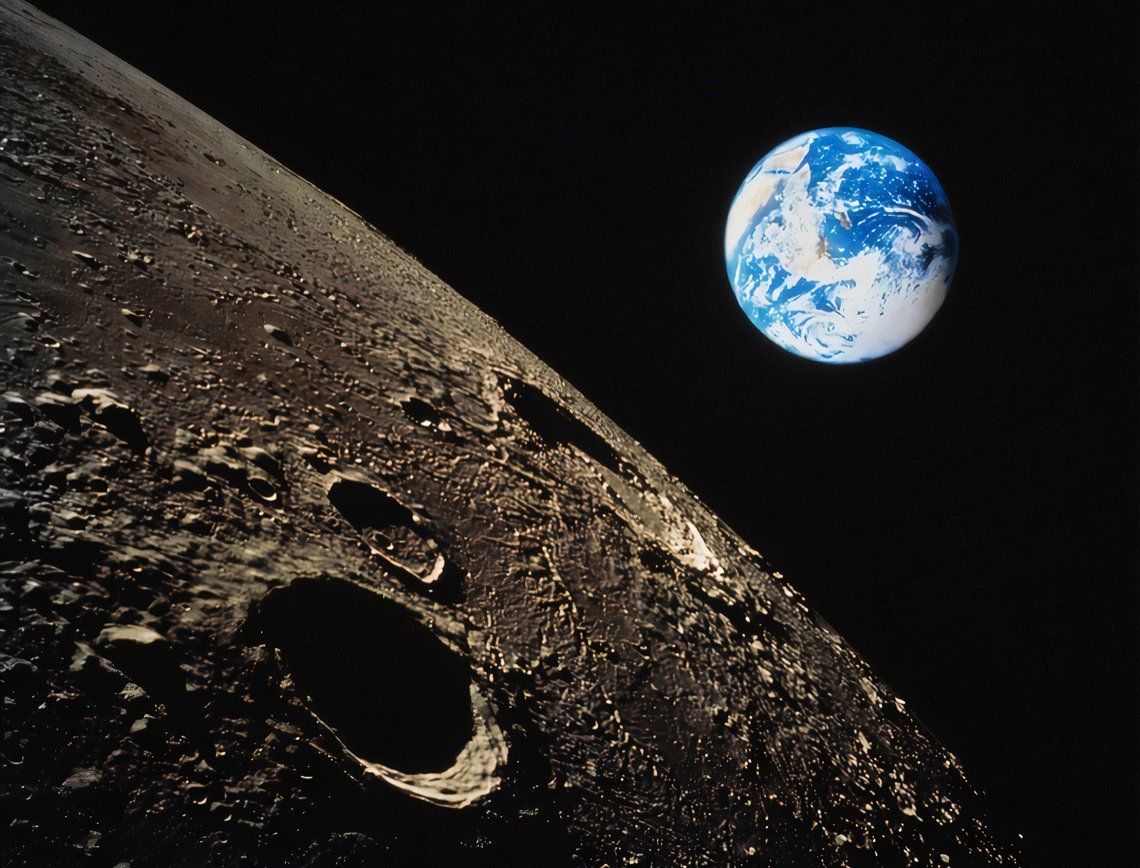
UN laws do exist governing outer space activities (Image: Pixabay)
29 August - 02 September 2022
In the moon race, time is limited to rebuild a peaceful international order
Artemis-1 is symbolic of our long-term goals in space, returning to the moon, exploring deep space and retrieving resources from other celestial bodies. Yet as we accelerate towards these goals, the world is still far away from establishing rules to govern such activities, which will be vital in order to prevent conflict, and address this legal grey area.
The issue has become more pressing this week in light of an ongoing public feud between China and NASA Administrator, Bill Nelson. Both sides may be looking to explore the same landing zones on the moon, and whilst the UN Outer Space Treaty (OST) forbids the appropriation of territory, the use of resources remains unclear. New space nations and the commercial sector require clarity, before becoming embroiled in conflict, whilst deteriorating international relations continue to impact relations in space.
There could be hope, and international laws do exist, but how can they be expanded, managed and implemented, in order to secure a successful future in space? Some proposals were put forwards this week.
The space economy is rapidly expanding, and so must the rules
The new space economy will not only encompass the space superpowers, but a fully fledged, high-functioning economy, with new nations emerging and a powerful and innovative private sector driving it. Without a globally recognised set of rules and governance in place, this future could be set the fail.
South Korea are building on their goals in space, seeking funding to develop a lunar lander to be carried to the moon on their own rocket, by 2031. They already sent their first lunar rover to the moon last month, and are amongst a host of new space nations such as the UK and Australia, looking to be part of this promising future.
Our future will also belong to the new and innovative private sector, exemplified this week by US startup Orbit Fab, announcing their plans to demonstrate in-orbit refuelling technology by 2025, with leading debris removal company Astroscale signing up for their services.
The US have also restated their commitment to the private sector with the Air Force Research Laboratory announcing it’s plans to partner with the private sector in order to move forwards with projects such as solar powered spacecraft. Furthermore, US Chief of Space Operations recently paid a visit to British rocket-maker, Skyrora, in a boost to US-UK cooperation in space. The visit also reaffirmed governmental approval of such companies, as the Space Chief John Raymond said “Now, more than ever, international cooperation in space is critically important. And the proliferation of commercial space efforts helps all spacefaring nations by driving costs down.”
As old and new stakeholders drive the industry towards its goals, problems also await them. In reports this week, it appears that China and the US have chosen the same landing sites in the lunar south pole. This is a significant development, and representative of the problems that lay ahead. Territory cannot be appropriated, according to international law, but it’s highly dangerous to land at the same sites. The US have proposed the use of “safety zones” in their Artemis Accords, but China claim that this is tantamount to appropriation. On top of this, international relations continue to deteriorate, and it appears that these matters will not be resolved quickly.
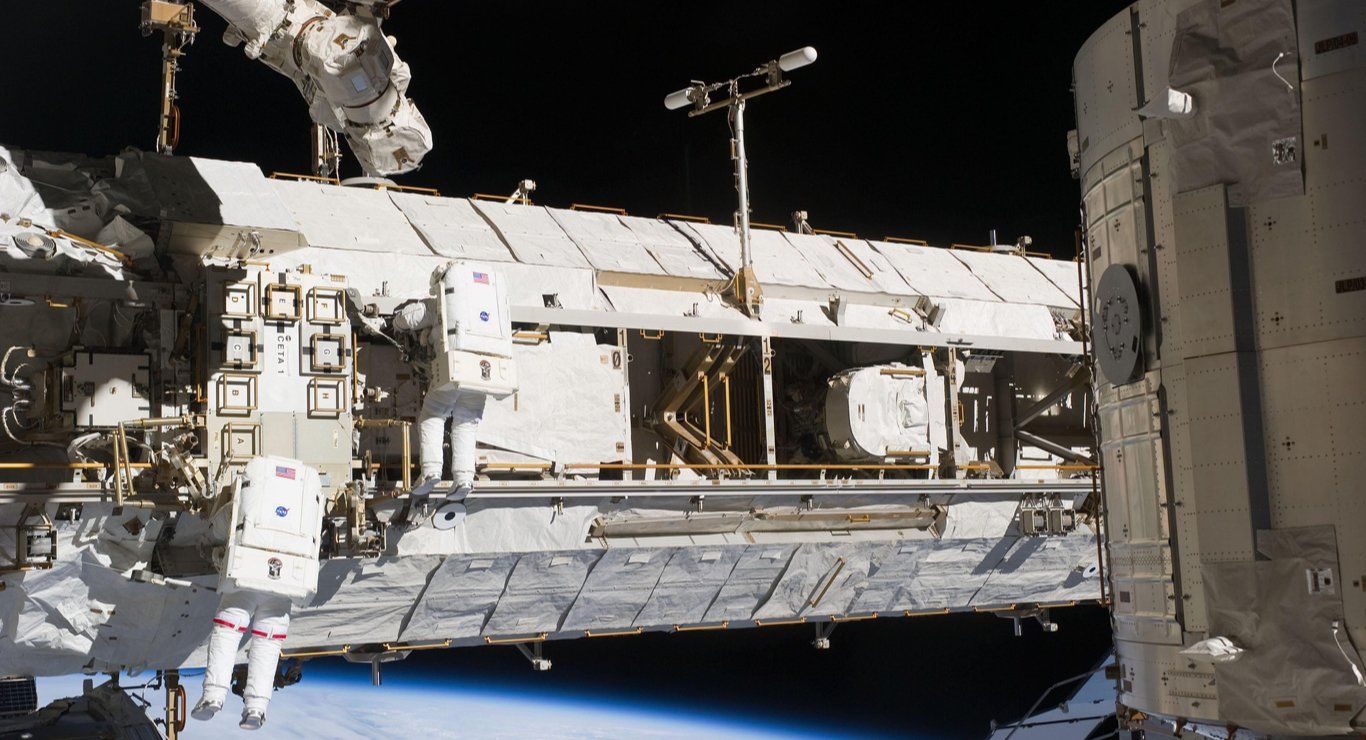
Space continues to be affected by events on Earth, such as on ISS (Image: Pixabay)
Earthly conflicts could destroy hard-earned peace in space
The deterioration of international relations is certainly affecting relations in space, at a time when unity is so desperately needed in oder to guarantee a peaceful future. Can space once again become the bastion of politically neutral cooperation, or even be used to mend relations, or will it permanently become entwined with politics and geopolitics? Our giant leap forwards in space comes at a time when international relations are shifting.
In a surprising move, India has denounced China’s recent activities, and accused it of militarising the Taiwan strait, after China recently docked a military research vessel in the Sri Lanka port of Hambantota, with India fearing that China intends to use the port as military base. This new stance from India could have consequences for China, who are already dealing with international pressure from the west on Taiwan. Also, Taiwanese president Tsai Ing-wen has recently met US governor of Arizona, declaring that Taiwan looks forwards to establishing a microchip factory there, and comes at a critical time considering the global chip shortage. Taiwan have been (and will be) receiving diplomatic visits of officials from the US, Europe, Canada and the UK.
As dramatic shifts in international relations takes place, is it inevitable that our future will be tainted by the events of the present? Whilst US-Russian cooperation on the ISS continues to provide some hope for a politically neutral cooperation, relations with China continue to deteriorate. A war of words has been taking place between China and NASA’s Bill Nelson, spurred on by the Artemis-1 launch. Nelson said that ““we must be very concerned that China is landing on the Moon and saying ‘It’s ours now and you stay out’”. Zhao Lijian, a Chinese foreign ministry spokesman, responded ”the US side has constantly constructed a smear campaign against China's normal and reasonable outer space endeavors, and China firmly opposes such irresponsible remarks,”.
It doesn’t appear at the moment that adversaries are in a position to discuss an open, cooperative and peaceful future in space, particularly in relation to appropriation of territory and resources. Yet there is one thing to remember, which is that despite their differences, the US, China and Russia are all party to the 1967 Outer Space Treaty. Whilst the treaty may be outdated and open to interpretation, it could be a solid foundation.

Can UN law be updated for the new space age? (Image: Pixabay)
There are rules in place, which can guide our way to a peaceful and successful future
The OST is in in place, but it may be the case that needs to be updated, in order to accommodate for the new space age, with it especially lacking protocols for mining in outer space and appropriating resources. But, this may not be as easy as it sounds. The Moon Agreement 1979, lays out rules that define lunar resources as the “common heritage of mankind”. This agreement was not signed by any of the major space nations.
The US seem to be satisfied that the OST allows for resource extraction, and is enshrined in their Artemis Accords. However, Michele Hanlon, McGill University claims that ”by building a mining operation, some would argue ... you're actually claiming sovereignty by another means”. Yet both the US Artemis Accords and future Chinese-led missions will aim to secure the same landing sites on the moon, and likely for the same ultimate goal of extracting valuable minerals. Both sides claim to be following the same set of International laws, but are still on course for collision.
However, Belgium claims that it may have an answer. According to the Brussels Times, the country has established a new working group as part of the United Nations Committee for the Peaceful Uses of Outer Space (UNCOPUOS). Belgium are perched in-between international space mining regulations. They are party to the Moon Agreement, meaning they cannot sign any new laws permitting outer space mining, but they are part of the ESA, which works as part of the Artemis Accords, that does. This could see Belgium become a neutral mediator in managing rules, which could be laid out as part of a set of fair guidelines created within the new working group.
China and the US may also be trying to take lead in a battle for moral superiority. China this week announced that they are achieving historic “firsts” as part of their sun-probing satellite mission, in which they are openly sharing data with the global society. They are also opening their new Tianwen station for use by the internal community, as well as building the world’s furthest reaching radar system to detect earth-threading asteroids. Could this indicate China as taking the lead in building a global space community and looking after the interests of the planet? At the same time, the US are taking the lead in achieving a ban on anti-sat demonstrations, and protecting Earth and Earth-orbit from such activities.
Whichever side you fall on, it is still the same goal that is trying to be achieved. However, deteriorating international relations and scepticism of one another is making it seemingly impossible to find a way for us all to come together and agree on a way forwards. Yet only last week, the US and China announced a deal that will hopefully allow Chinese companies to remain trading on the US stock exchange, preventing around 200 companies from being kicked out. This does go to show that there can be a way forwards in resolving disputes, despite their differences. In the OST, we have made a start in establishing internationally recognised space law, and now it’s time to continue with that job, of building a peaceful and successful future in outer space, before it’s too late.
Share this article
External Links
This Week
*News articles posted here are not property of ANASDA GmbH and belong to their respected owners. Postings here are external links only.
29 August - 2 Sept 2022
In the moon race, time is limited to rebuild a peaceful international order
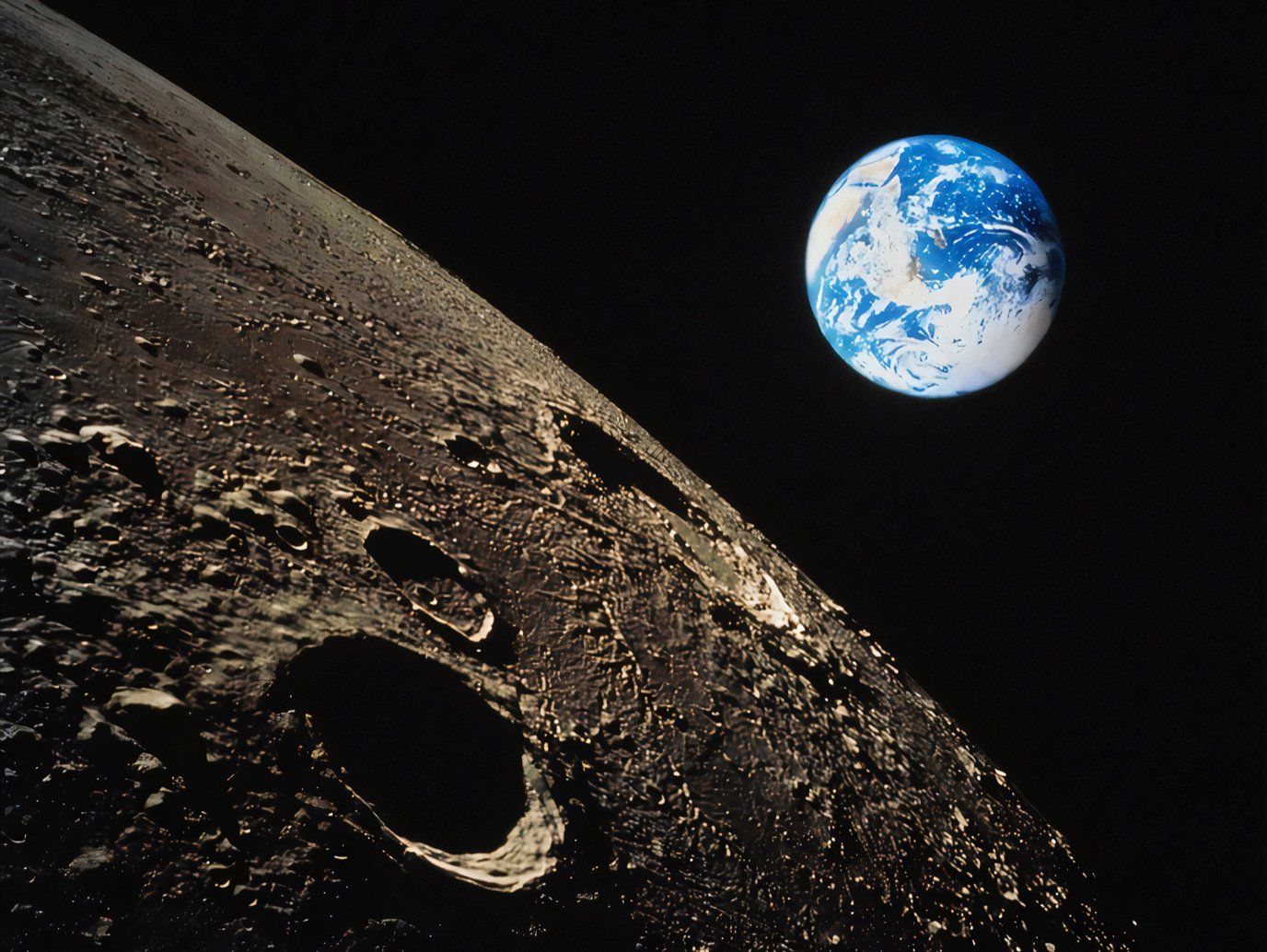
UN laws do exist governing outer space activities (Image: Pixabay)
Artemis-1 is symbolic of our long-term goals in space, returning to the moon, exploring deep space and retrieving resources from other celestial bodies. Yet as we accelerate towards these goals, the world is still far away from establishing rules to govern such activities, which will be vital in order to prevent conflict, and address this legal grey area.
The issue has become more pressing this week in light of an ongoing public feud between China and NASA Administrator, Bill Nelson. Both sides may be looking to explore the same landing zones on the moon, and whilst the UN Outer Space Treaty (OST) forbids the appropriation of territory, the use of resources remains unclear. New space nations and the commercial sector require clarity, before becoming embroiled in conflict, whilst deteriorating international relations continue to impact relations in space.
There could be hope, and international laws do exist, but how can they be expanded, managed and implemented, in order to secure a successful future in space? Some proposals were put forwards this week.
The space economy is rapidly expanding, and so must the rules
The new space economy will not only encompass the space superpowers, but a fully fledged, high-functioning economy, with new nations emerging and a powerful and innovative private sector driving it. Without a globally recognised set of rules and governance in place, this future could be set the fail.
South Korea are building on their goals in space, seeking funding to develop a lunar lander to be carried to the moon on their own rocket, by 2031. They already sent their first lunar rover to the moon last month, and are amongst a host of new space nations such as the UK and Australia, looking to be part of this promising future.
Our future will also belong to the new and innovative private sector, exemplified this week by US startup Orbit Fab, announcing their plans to demonstrate in-orbit refuelling technology by 2025, with leading debris removal company Astroscale signing up for their services.
The US have also restated their commitment to the private sector with the Air Force Research Laboratory announcing it’s plans to partner with the private sector in order to move forwards with projects such as solar powered spacecraft. Furthermore, US Chief of Space Operations recently paid a visit to British rocket-maker, Skyrora, in a boost to US-UK cooperation in space. The visit also reaffirmed governmental approval of such companies, as the Space Chief John Raymond said “Now, more than ever, international cooperation in space is critically important. And the proliferation of commercial space efforts helps all spacefaring nations by driving costs down.”
As old and new stakeholders drive the industry towards its goals, problems also await them. In reports this week, it appears that China and the US have chosen the same landing sites in the lunar south pole. This is a significant development, and representative of the problems that lay ahead. Territory cannot be appropriated, according to international law, but it’s highly dangerous to land at the same sites. The US have proposed the use of “safety zones” in their Artemis Accords, but China claim that this is tantamount to appropriation. On top of this, international relations continue to deteriorate, and it appears that these matters will not be resolved quickly.
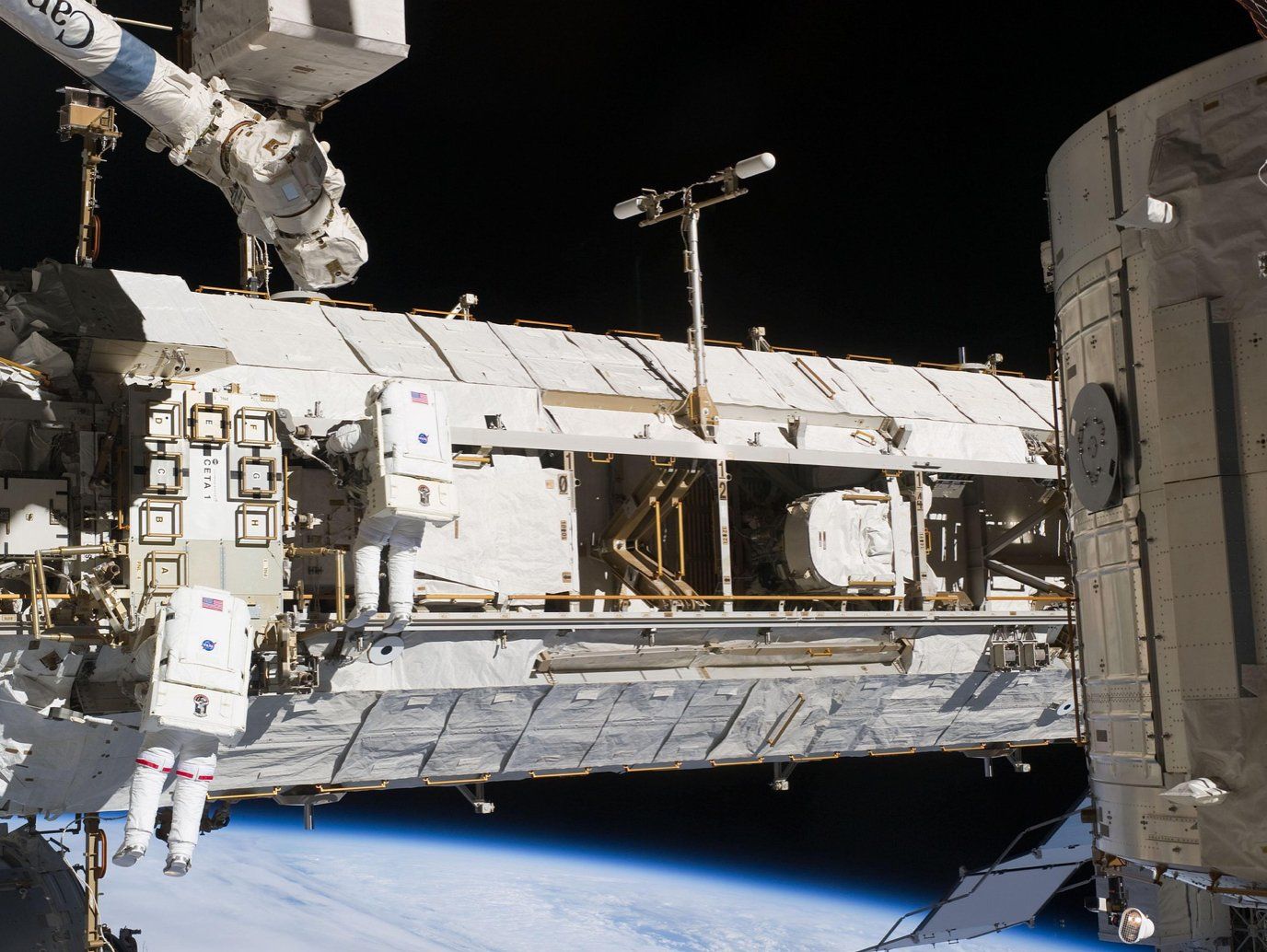
Space continues to be affected by events on Earth, such as on ISS (Image: Pixabay)
Earthly conflicts could destroy hard-earned peace in space
The deterioration of international relations is certainly affecting relations in space, at a time when unity is so desperately needed in oder to guarantee a peaceful future. Can space once again become the bastion of politically neutral cooperation, or even be used to mend relations, or will it permanently become entwined with politics and geopolitics? Our giant leap forwards in space comes at a time when international relations are shifting.
In a surprising move, India has denounced China’s recent activities, and accused it of militarising the Taiwan strait, after China recently docked a military research vessel in the Sri Lanka port of Hambantota, with India fearing that China intends to use the port as military base. This new stance from India could have consequences for China, who are already dealing with international pressure from the west on Taiwan. Also, Taiwanese president Tsai Ing-wen has recently met US governor of Arizona, declaring that Taiwan looks forwards to establishing a microchip factory there, and comes at a critical time considering the global chip shortage. Taiwan have been (and will be) receiving diplomatic visits of officials from the US, Europe, Canada and the UK.
As dramatic shifts in international relations takes place, is it inevitable that our future will be tainted by the events of the present? Whilst US-Russian cooperation on the ISS continues to provide some hope for a politically neutral cooperation, relations with China continue to deteriorate. A war of words has been taking place between China and NASA’s Bill Nelson, spurred on by the Artemis-1 launch. Nelson said that ““we must be very concerned that China is landing on the Moon and saying ‘It’s ours now and you stay out’”. Zhao Lijian, a Chinese foreign ministry spokesman, responded ”the US side has constantly constructed a smear campaign against China's normal and reasonable outer space endeavors, and China firmly opposes such irresponsible remarks,”.
It doesn’t appear at the moment that adversaries are in a position to discuss an open, cooperative and peaceful future in space, particularly in relation to appropriation of territory and resources. Yet there is one thing to remember, which is that despite their differences, the US, China and Russia are all party to the 1967 Outer Space Treaty. Whilst the treaty may be outdated and open to interpretation, it could be a solid foundation.
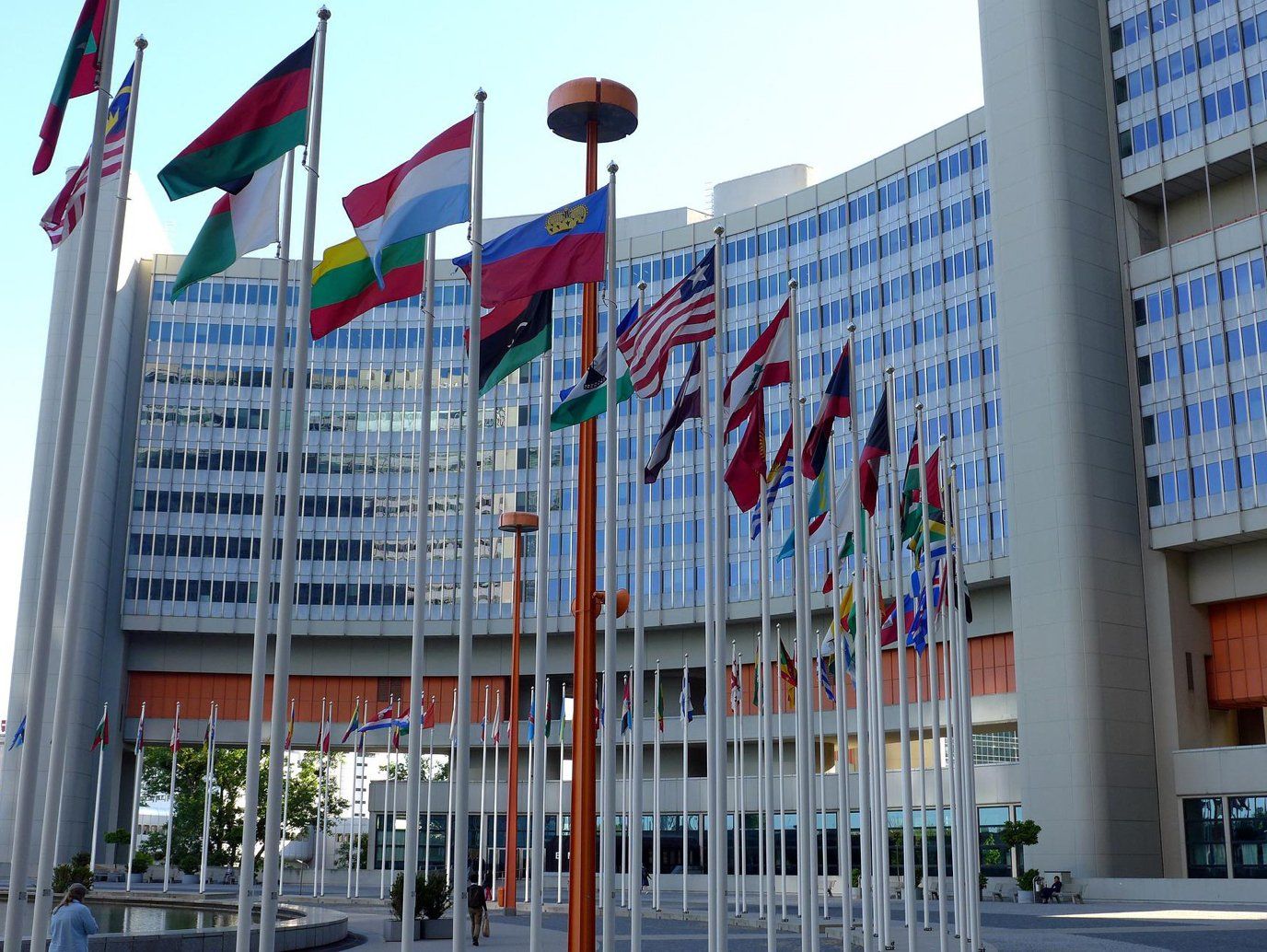
Can UN law be updated for the new space age? (Image: Pixabay)
There are rules in place, which can guide our way to a peaceful and successful future
The OST is in in place, but it may be the case that needs to be updated, in order to accommodate for the new space age, with it especially lacking protocols for mining in outer space and appropriating resources. But, this may not be as easy as it sounds. The Moon Agreement 1979, lays out rules that define lunar resources as the “common heritage of mankind”. This agreement was not signed by any of the major space nations.
The US seem to be satisfied that the OST allows for resource extraction, and is enshrined in their Artemis Accords. However, Michele Hanlon, McGill University claims that ”by building a mining operation, some would argue ... you're actually claiming sovereignty by another means”. Yet both the US Artemis Accords and future Chinese-led missions will aim to secure the same landing sites on the moon, and likely for the same ultimate goal of extracting valuable minerals. Both sides claim to be following the same set of International laws, but are still on course for collision.
However, Belgium claims that it may have an answer. According to the Brussels Times, the country has established a new working group as part of the United Nations Committee for the Peaceful Uses of Outer Space (UNCOPUOS). Belgium are perched in-between international space mining regulations. They are party to the Moon Agreement, meaning they cannot sign any new laws permitting outer space mining, but they are part of the ESA, which works as part of the Artemis Accords, that does. This could see Belgium become a neutral mediator in managing rules, which could be laid out as part of a set of fair guidelines created within the new working group.
China and the US may also be trying to take lead in a battle for moral superiority. China this week announced that they are achieving historic “firsts” as part of their sun-probing satellite mission, in which they are openly sharing data with the global society. They are also opening their new Tianwen station for use by the internal community, as well as building the world’s furthest reaching radar system to detect earth-threading asteroids. Could this indicate China as taking the lead in building a global space community and looking after the interests of the planet? At the same time, the US are taking the lead in achieving a ban on anti-sat demonstrations, and protecting Earth and Earth-orbit from such activities.
Whichever side you fall on, it is still the same goal that is trying to be achieved. However, deteriorating international relations and scepticism of one another is making it seemingly impossible to find a way for us all to come together and agree on a way forwards. Yet only last week, the US and China announced a deal that will hopefully allow Chinese companies to remain trading on the US stock exchange, preventing around 200 companies from being kicked out. This does go to show that there can be a way forwards in resolving disputes, despite their differences. In the OST, we have made a start in establishing internationally recognised space law, and now it’s time to continue with that job, of building a peaceful and successful future in outer space, before it’s too late.
Share this article
External Links
This Week
*News articles posted here are not property of ANASDA GmbH and belong to their respected owners. Postings here are external links only.
















